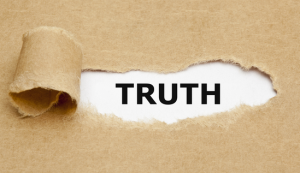
Hopefully, between the fake news and targeted commercial and political ads in one’s social network feeds, folks are running across articles from established and valid sources about how we might, as a society, find ways to make the truth shine through all the info that is coming at us. What it means to be a citizen is changing. Voting, supporting our communities, and standing up for our beliefs is not enough.
Being a responsible citizen now also means holding oneself accountable to find the truth and not spread false information. Our children need this modeling as we continue to help them become better equipped to be citizens themselves.
I am listening to podcasts and reading articles like In Today’s World; the Truth is Losing, where one approach is to find ways for social media providers to police information and possibly filter or label it with levels of truthfulness- quite the task. As an educator, one definitive pathway is to follow in dealing with information. We continue to engage our students in our Information and Communication Literacies (ICL) curriculum using the AASL and ISTE standards to guide us.
Instructional technologists and librarians collaborate with faculty and administrators to develop lessons and units of study that involve research putting students in charge of finding, analyzing, and curating information. Students further develop their information and media literacies to the point of fluency the more they are called upon to use inquiry in their learning. Hopefully, administrators are hearing society’s call for the need to skill our students, which means more support for the work of our librarians and instructional technologists. 🙂
But now, more than ever, we need to do more. My challenge to school leaders is bringing students, teachers, administrators, and parents together to brainstorm and develop programs that make “winning of the truth” an integral part of our school learning communities.
One example might be to start a school “truth finder” game/competition in which teams of students search for false news that they then connect to the facts citing their sources and explaining their reasoning. Learning Management Systems, Google Forms, Docs, Padlet, etc., could be used to curate and share what the teams find.
Your “Winning of the Truth” committee will develop terrific programs. Badging, student-produced videos, public service announcements, a “winning of the truth” segment for a morning news show, etc., are just a few other ideas. A possible extension is to develop an initiative that helps students understand the oversimplification of issues and how they can use their ICL skills to discover complexities in building deep understanding. One can draw from the Thinking Routines supported by technology to further this effort.
We know that disruptions often lead to change. So let’s find ways to stop this trend of sharing falsities by further developing our students’ information and citizenship skills. Let’s find ways for the truth to win.
Leave a Reply